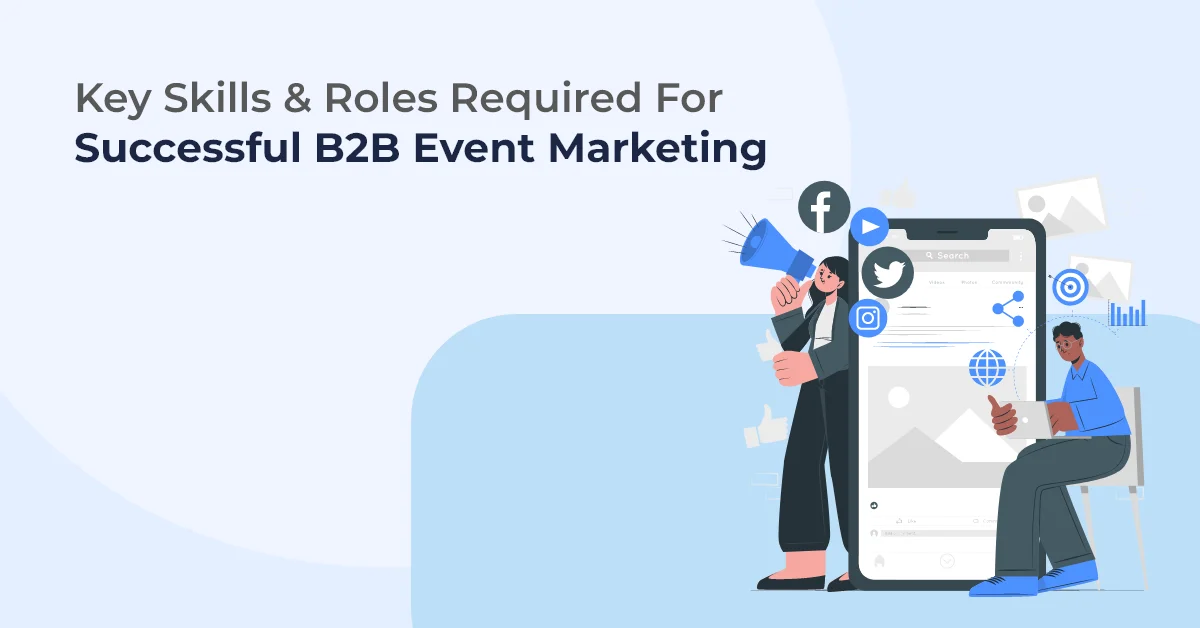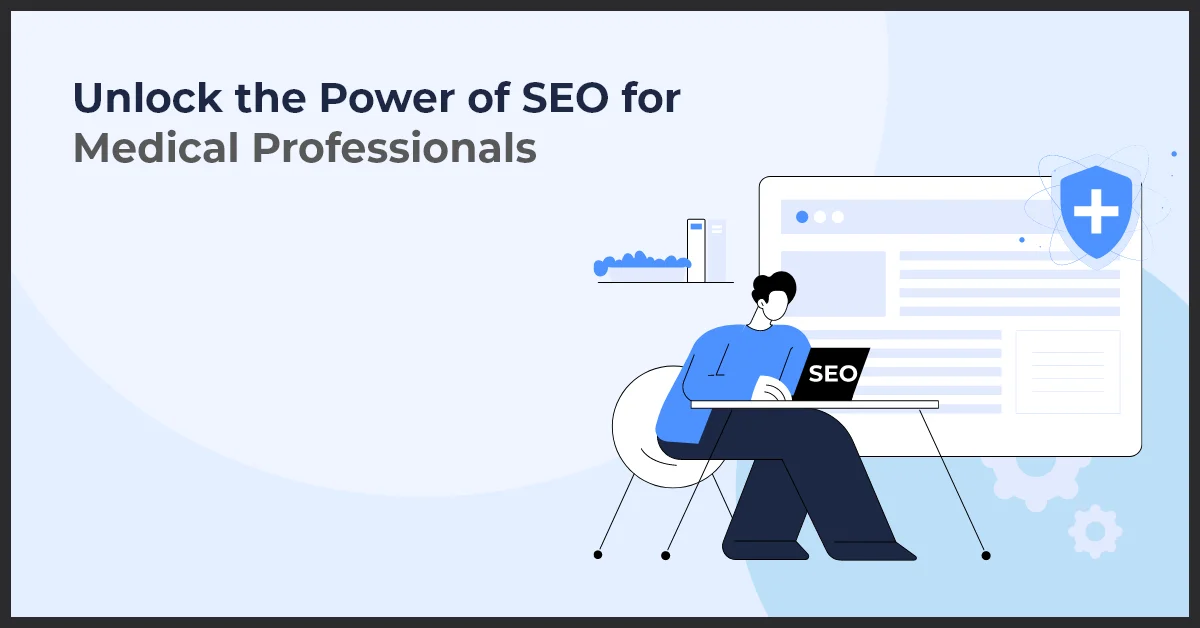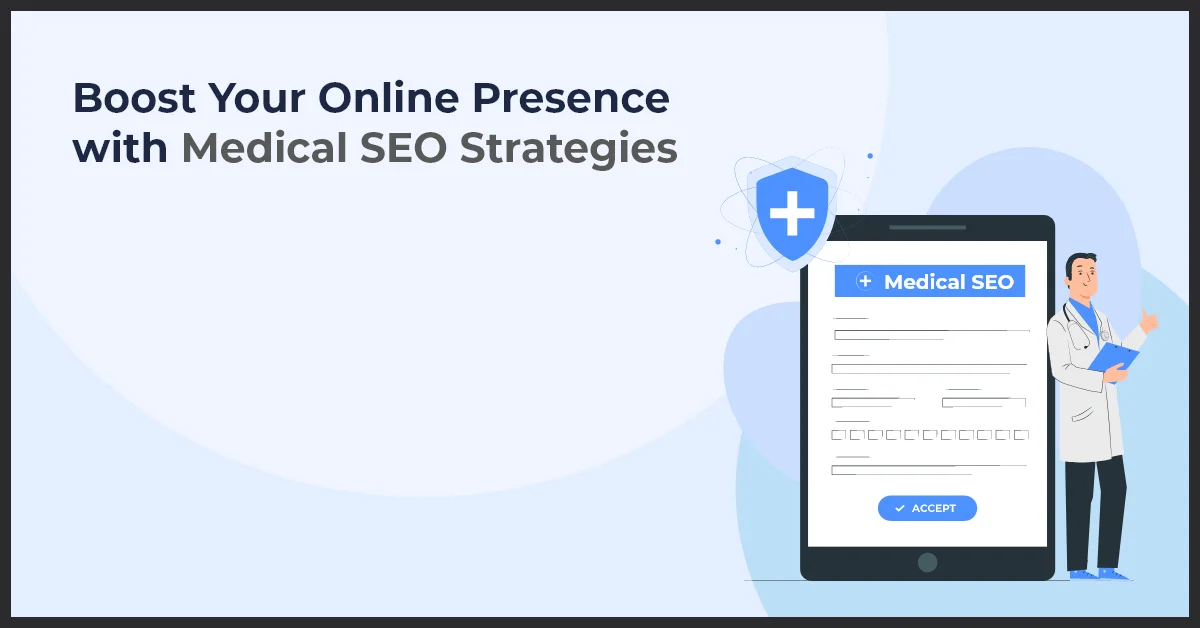B2B Event Marketing: Essential Skills and Roles for Success

Published on: September 13, 2019
Updated on: March 06, 2025
2142 Views
- Digital Marketing
23 min read
B2B Event Marketing- According to AdStage, 8% of B2B marketers use in-person events for lead generation initiatives. This is particularly important considering 73% of marketers are prioritizing lead quality in 2018.
Depending on the size of the organization, functional responsibilities for event-related activities may sit within multiple departments or geographies, and the skills required may require multiple roles. In smaller organizations, one individual may be responsible for many roles tied to events. You must have an integrated marketing plan that should be built in partnership with the sales team for every event or conference you plan to attend. The plan must have 3 phases, Pre Event, At Event and Post Event activities that need to happen.
Understanding the B2B Event Marketing Landscape
B2B event marketing is an essential strategy for businesses looking to network, generate leads, and showcase their products or services. To truly understand the landscape of B2B event marketing, it is crucial to explore its overview, key players and stakeholders, as well as the prevalent trends and challenges.
Overview of the B2B Event Industry
In the vast realm of B2B event marketing, the industry encompasses a wide range of events, including trade shows, conferences, seminars, workshops, and more. These events provide a platform for companies to connect with potential clients, partners, and other industry professionals.
Key Players and Stakeholders involved in B2B Events
The success of B2B events relies on the collaboration and involvement of various key players and stakeholders. Event organizers, venue providers, sponsors, exhibitors, speakers, and attendees all play crucial roles in shaping the outcome of these events.
Trends and Challenges in B2B Event Marketing
As with any field, B2B event marketing is influenced by ongoing trends and challenges. Keeping up with emerging trends, such as incorporating technology, personalization, and interactive elements into events, can greatly enhance their effectiveness. However, challenges such as budget constraints, competition, and attracting the right audience can pose hurdles for event marketers.
The Role of Marketers in B2B Event Marketing
Marketers play a crucial role in planning and executing successful B2B events. Their expertise and strategic thinking are essential in ensuring that these events achieve their goals and deliver a positive return on investment for the companies involved.
Importance of marketers in planning and executing B2B events
B2B events are an opportunity for businesses to showcase their products or services, build relationships with prospects and customers, and generate leads. Marketers bring their in-depth knowledge of the target audience, market trends, and marketing strategies to the table, which helps in creating event experiences that resonate with attendees.
From identifying the right event formats to promoting the event through various channels, marketers ensure that the event aligns with the company's overall marketing objectives and delivers value to attendees and sponsors alike. Their understanding of the buyer's journey and customer personas enables them to tailor the event content and messaging to the needs and interests of the target audience.
Responsibilities of marketers in B2B event marketing
Marketers have a wide range of responsibilities when it comes to B2B event marketing. They are involved in all stages of the event planning process, starting from defining the event goals and objectives to measuring the event's success. Some of their key responsibilities include:
- Developing a comprehensive event marketing plan
- Creating event messaging and positioning
- Designing event collateral and promotional materials
- Identifying and engaging with potential sponsors and exhibitors
- Coordinating with internal teams and external vendors
- Promoting the event through various marketing channels
- Driving attendee registration and ticket sales
- Managing event logistics and on-site operations
Effective strategies for marketers to maximize event success
To maximize the success of B2B events, marketers can employ various strategies:
- Pre-event marketing: Create buzz and generate excitement by using targeted email campaigns, social media promotion, and content marketing.
- Personalization: Tailor event communications and content to the individual needs and preferences of attendees.
- Networking opportunities: Facilitate meaningful connections among attendees through networking sessions, roundtable discussions, and matchmaking tools.
- Multi-channel promotion: Leverage a combination of online and offline marketing channels to reach a wider audience.
- Post-event follow-up: Nurture the leads generated from the event by engaging them with personalized follow-up communications and content.
By implementing these strategies, marketers can create memorable and impactful event experiences that drive business growth and reinforce the company's brand and reputation.
Leveraging B2B Events for Brand Building
When it comes to brand building, B2B events can play a crucial role in enhancing brand visibility and brand image. These events provide an excellent opportunity for businesses to showcase their brand to a targeted audience and promote their unique value proposition. Here are some strategies to integrate branding into B2B event marketing:
- Create a Consistent Brand Identity: Ensure that your brand's visual elements, such as logo, colors, and fonts, are consistently used across all event materials and communications. This will help reinforce brand recognition and leave a lasting impression on attendees.
- Design Engaging Booths and Displays: Your booth or display area should be visually appealing and align with your brand's personality. Use eye-catching visuals, signage, and interactive elements to attract attendees and showcase your products or services.
- Offer Branded Giveaways: Providing attendees with branded promotional items can leave a lasting impression and serve as a reminder of your brand long after the event. Choose items that are useful and relevant to your target audience.
- Create Branded Content: Produce informative and engaging content that positions your brand as a thought leader in your industry. This can include presentations, workshops, or panel discussions that highlight your expertise and showcase the value your brand brings to the market.
Tailoring B2B Events to the Target Customer
When it comes to B2B event marketing, one size does not fit all. Every business has a unique target audience, and it's crucial to tailor your events to meet their specific needs and preferences. In this section, we will explore how you can effectively tailor your B2B events to your target customers.
Identifying the target customer in B2B event marketing
Before you can tailor your B2B events, you need to have a clear understanding of who your target customers are. Identify their characteristics, challenges, and goals. Conduct market research and gather insights to paint a comprehensive picture of who they are.
Customizing event experiences for different customer segments
Once you have identified your target customers, it's essential to customize the event experiences according to the different customer segments. Some customers may prefer interactive workshops, while others may find value in networking opportunities or expert panels. By offering a variety of experiences, you can cater to the diverse preferences of your audience.
Consider creating specialized tracks or breakout sessions that focus on specific topics or industries. This way, attendees can choose sessions that align with their interests or specific pain points. Customization is the key to creating an engaging and valuable experience for your target customers.
Tools and techniques for understanding customer needs in B2B events
To tailor your B2B events effectively, you need to understand your customers' needs and goals. Utilize tools like surveys, feedback forms, and interviews to gather valuable insights from your audience. These tools provide you with direct feedback and help you gauge the success and impact of your events.
In addition to surveys and feedback forms, leverage data analytics to understand attendee behavior during events. Analyzing data such as session attendance, engagement metrics, and interaction patterns can help you identify areas of improvement and fine-tune your future events.
Furthermore, keep an eye on industry trends and competitor activities. Staying up to date with market dynamics can help you stay ahead of the curve and ensure your events remain relevant and appealing to your target customers.
B2B Event Marketing for Firms Selling Products
In the world of B2B event marketing, firms selling products have a unique opportunity to showcase and demonstrate their offerings in a face-to-face setting. This can be a game-changer for brands looking to leave a lasting impression on potential customers and drive increased product sales.
Strategies for showcasing and demonstrating products at B2B events
- Design an interactive booth that highlights your products and captures attendees' attention.
- Create product demos that are informative, engaging, and allow attendees to experience your offerings firsthand.
- Offer product samples or trials to event attendees, allowing them to fully understand the value and benefits of your products.
- Utilize technology, such as touchscreens or virtual reality, to enhance the product demonstration experience.
Creating engaging product experiences for event attendees
- Host workshops or interactive sessions that allow attendees to learn how to use your products effectively.
- Provide opportunities for attendees to ask questions and interact with your product experts.
- Showcase success stories and case studies of how your products have helped other businesses.
- Organize competitions or challenges related to your products, encouraging attendees to actively participate and engage.
Evaluating the impact of B2B event marketing on product sales
Measuring the success of your B2B event marketing efforts is crucial to understanding the impact on product sales. Key metrics to consider include:
- Number of leads generated at the event and their conversion rate.
- Number of product demos or trials conducted during the event.
- Percentage of attendees who made a purchase or expressed interest in buying your products.
- Post-event surveys to gather feedback and insights from attendees on their experience with your products.
By implementing these strategies and evaluating the impact of your B2B event marketing initiatives, firms selling products can effectively leverage events to boost brand visibility, drive product sales, and ultimately achieve business success.
B2B Event Marketing for Firms Offering Services
When it comes to B2B event marketing, firms that offer services face unique challenges and opportunities. Unlike firms selling products, service firms must find innovative ways to promote their intangible offerings. In this section, we will explore the challenges and opportunities in promoting services at B2B events and discuss how to showcase service capabilities through interactive experiences. Additionally, we will delve into the importance of measuring the effectiveness of B2B event marketing for service firms.
Challenges and Opportunities in Promoting Services at B2B Events
One of the biggest challenges for service firms at B2B events is standing out in a sea of competitors. Unlike physical products, services are not tangible and can be difficult to promote effectively. However, this challenge also presents an opportunity for service firms to get creative and find unique ways to showcase their offerings.
Another challenge is communicating the value of services to potential customers. In B2B event marketing, service firms must clearly articulate the benefits and outcomes their services offer, as well as how they can solve specific pain points for customers.
Showcasing Service Capabilities through Interactive Experiences
To overcome these challenges and capture the attention of attendees, service firms can focus on providing interactive experiences at B2B events. These experiences can include live demos, interactive presentations, and hands-on workshops.
By allowing potential customers to engage with their services in a hands-on and immersive way, service firms can effectively demonstrate the value they bring. This not only helps attendees understand the benefits of the services but also creates a memorable experience that sets the firm apart from competitors.
Measuring the Effectiveness of B2B Event Marketing for Service Firms
Measuring the effectiveness of B2B event marketing for service firms is crucial to understand the return on investment (ROI) and optimize future marketing efforts. Key metrics for measuring success can include the number of qualified leads generated, conversions, customer retention rates, and customer satisfaction.
In addition to quantitative metrics, service firms should also gather qualitative feedback from attendees to gain insights into their experiences and perceptions of the firm's offerings. By analyzing these metrics and feedback, service firms can make data-driven decisions to enhance their B2B event marketing strategies and achieve greater success.
Industry-specific B2B Event Marketing Tactics
- Overview of industry-specific B2B event marketing approaches
- Case studies highlighting successful event marketing in various industries
- Tips for tailoring B2B event marketing to specific industries
Building the Right Audience for B2B Events
Attracting the ideal audience to your B2B events is crucial for their success. In order to maximize your event's impact and drive meaningful connections, it is important to implement effective strategies for audience acquisition.
Strategies for attracting the ideal audience to B2B events
- Identify your target audience: Before promoting your event, clearly define the specific industry professionals, decision-makers, and potential leads you want to attract. This will help you tailor your messaging and outreach efforts.
- Create compelling event content: Develop an event program and content that aligns with the interests and pain points of your target audience. This will make your event more appealing and increase the likelihood of attracting the right attendees.
- Utilize targeted marketing channels: Identify the most effective channels for reaching your target audience, such as industry-specific publications, social media platforms, and professional networks. Craft compelling messages that highlight the unique value your event offers.
- Collaborate with industry influencers: Engage with influential individuals or organizations in your industry who can help promote your event to their networks. Their endorsement can significantly boost your event's visibility and attract a relevant audience.
Leveraging data and analytics for targeted audience acquisition
Harnessing the power of data and analytics allows you to make data-driven decisions and optimize your audience acquisition efforts:
- Segment your audience: Analyze your existing customer data to identify key characteristics and attributes that define your target audience. This will enable you to create segmented lists and tailor your messaging for maximum impact.
- Implement personalized marketing: Utilize marketing automation tools to send personalized communications to different segments of your audience. By delivering relevant content and offers, you can increase the likelihood of attracting the right individuals to your event.
- Track and measure results: Monitor the performance of your marketing campaigns using analytics tools. Track key metrics such as website traffic, email open rates, and conversion rates to gauge the success of your audience acquisition efforts and make necessary adjustments.
Engaging and nurturing event attendees to foster long-term relationships
Building long-term relationships with event attendees is crucial for generating repeat attendees and fostering brand loyalty:
- Create personalized post-event communications: Follow up with attendees after the event, thanking them for their participation, and providing additional resources or offers based on their interests and needs.
- Offer exclusive content or promotions: Provide attendees with access to exclusive content, discounts, or promotions as a way of further engaging them and reinforcing the value of their attendance.
- Solicit feedback and testimonials: Encourage attendees to provide feedback on their event experience and collect testimonials that can be used in future event promotions. This feedback can help you improve future events and attract new attendees.
- Maintain regular communication: Keep your audience engaged throughout the year by sending relevant industry updates, educational resources, and invitations to upcoming events or webinars. This will help nurture the relationship and keep your brand top of mind.
The Role of Sales Representatives in B2B Event Marketing
In the world of B2B event marketing, sales representatives play a crucial role in driving success. While marketers are responsible for planning and executing engaging events, it is the sales representatives who bring the leads and conversions. To achieve optimal results, a collaborative approach between sales and marketing is necessary.
Collaborative approach of sales and marketing in B2B events:
For a successful B2B event, sales representatives and marketers need to work hand in hand. Sales representatives bring valuable customer insights to the marketing team, helping them tailor the event content and messaging to the target audience. By collaborating closely, the sales and marketing teams can align their strategies and ensure seamless integration of sales tactics throughout the event.
Empowering sales representatives to drive event-generated leads:
During a B2B event, sales representatives have a unique opportunity to interact directly with potential customers. Their role is to engage attendees, build relationships, and capture leads. It is essential to empower sales representatives with the necessary knowledge, tools, and training to effectively represent the company's products or services. By equipping them with compelling sales materials and providing them with a clear understanding of the event goals, sales representatives can maximize lead generation and conversion.
Maximizing post-event follow-up and conversion with effective sales tactics:
The success of B2B event marketing does not end with the event itself. It is crucial for sales representatives to maintain momentum and capitalize on the connections made during the event. Post-event follow-up is vital in nurturing leads and converting them into customers. Sales representatives should employ effective sales tactics, such as personalized email outreach, targeted offers, and tailored solutions, to continue engaging with prospects and move them further down the sales funnel.
Utilizing Event Management Software for B2B Event Marketing
In the world of B2B event marketing, staying organized and efficient is crucial. That's where event management software comes in. By leveraging the power of technology, businesses can streamline their event planning and execution process, ultimately maximizing the success of their B2B events.
Advantages of Event Management Software in B2B Event Planning
Event management software offers numerous advantages for B2B event planning. Firstly, it simplifies the entire event management process, from registration and ticketing to communication and marketing. With a centralized platform, event organizers can effortlessly handle logistics, track attendee data, and send targeted communications to engage potential attendees.
Furthermore, event management software provides real-time analytics and insights. By monitoring attendee behavior, businesses can gauge the success of their B2B events, identify areas for improvement, and make data-driven decisions. From tracking registrations and ticket sales to measuring attendee satisfaction, event management software enables businesses to measure the impact of their events accurately.
Key Features and Functionalities of Event Management Software
Event management software comes equipped with a range of features and functionalities designed to streamline B2B event marketing. These may include:
- Online registration and ticketing: An easy and convenient way for attendees to sign up and purchase tickets.
- Event website builder: Create a customized event website to showcase event details and facilitate communication.
- Marketing and promotion tools: Send targeted email campaigns, track social media engagement, and integrate with other marketing channels.
- Mobile event app: Enhance attendee experience with a dedicated mobile app featuring schedules, maps, and networking capabilities.
- Analytics and reporting: Monitor event performance, track attendance metrics, and access real-time insights.
Best Practices for Integrating Event Management Software into Marketing Strategies
Integrating event management software into your B2B event marketing strategies requires careful planning and execution. To make the most of this powerful tool, consider the following best practices:
- Align your goals: Clearly define your event objectives and ensure your event management software supports these goals.
- Segment your audience: Utilize the data captured by the software to segment your audience and tailor your marketing efforts accordingly.
- Automate repetitive tasks: Use automation features to save time and streamline administrative tasks, such as registration reminders and post-event follow-ups.
- Integrate with other systems: Connect your event management software with your CRM, email marketing software, and other tools to facilitate seamless data transfer and improve efficiency.
- Continuously evaluate and optimize: Regularly review your event metrics and attendee feedback to identify areas for improvement and make data-driven adjustments to your event marketing strategies.
Content Marketing Strategies for B2B Event Promotion
Content marketing is a crucial aspect of promoting B2B events. By leveraging the power of content, you can generate buzz, engage your target audience, and ultimately drive attendance to your event. Here are some effective content marketing strategies to consider for your B2B event promotion:
Leveraging content marketing for pre-event promotion
One of the most effective ways to build anticipation and drive attendance for your B2B event is by leveraging content marketing in the pre-event phase. Create engaging blog posts, articles, or press releases that highlight the key benefits and value of attending your event. Use persuasive content to convince your target audience that your event is a must-attend.
Creating valuable content to engage the target audience
To engage your target audience and build excitement for your B2B event, it's essential to create valuable and informative content. Develop webinars, podcasts, whitepapers, or case studies that address the pain points of your target audience and offer valuable solutions. By positioning yourself as an industry thought leader, you will heighten your event's credibility and attract more attendees.
Amplifying event reach through various content distribution channels
To maximize the reach of your B2B event, it's important to distribute your content through various channels. Utilize social media platforms like LinkedIn, Twitter, and Facebook to share your content and engage with your target audience. Leverage email marketing to send personalized invitations and updates to your subscribers. Collaborate with industry influencers or partner organizations to cross-promote your event and expand your reach.
Key Skills & Roles Required For Successful B2B Event Marketing
Successful execution of your event marketing and management will require the following skills and roles:
Event Manager
This role acts as a project manager and logistics and operations coordinator. Every event must have a designated event manager with an end to end responsibility and ensure all cross-functional teams are delivering to the event marketing plan.
Content Strategist
This role helps craft messaging and create assets by event type that align with the personas that you are expecting to engage with for each event. The messaging becomes the core of all communications done as part of your event marketing.
Social/Inbound Marketing/Digital Strategist
This role manages and monitors social media activities, designs Web assets and assists the nurture specialist and content strategist. It focuses on capturing inbound mentions, responses, and inquiries resulting from the successful execution of any B2B event marketing plan.
Automation/Nurture Specialist
This role is responsible for making sure of email engagement with prospect attendees and automating follow up with generated leads from the event. It is also responsible for implementing and managing rules, triggers and nurture programs within marketing automation platforms (MAPs) and event management software (EMS).
Influencer Relations
Media and analysts play a role in event strategy and overall effectiveness. This role owns and manages these relationships, creates a communication strategy and schedules meetings with media and analysts that may be attending the event. This can be great for getting media mentions and getting published or telecast coverage.
Sales Enablement
This role is responsible for accelerating potential buyers through the sales cycle. This includes training the sales team attending the B2B marketing event with the right messaging, positioning, presentations and demos supporting marketing efforts related to expected engagement at the event.
Teleprospecting
Pre- and post-event teleprospecting can be key to driving the right leads. This role helps drive attendance, deliver event-related messaging and follow up with attendees to identify interest and lead qualification.
Takeaway on B2B Event Marketing Industry Statistics
68% of B2B marketers use in-person events for lead generation initiatives. This is particularly important, considering 73% of marketers are prioritizing lead quality in 2018. (Adstage 2018)
55% of B2B organizations spend over 21% of their marketing budgets on B2B marketing events. (Bizzabo, 2018)
The median spend by a B2B company sponsoring an event is $20,000 (Marketing Charts, 2018).
46% of leadership (Vice President and C-Suite) agree that in-person events are the most critical marketing channel to achieve key business objectives. (Bizzabo, 2018)
There is no doubting the power of live events, just make sure you are using the latest digital engagement and automation tools along with the traditional best practices to make the best return on your investment in events. An integrated event marketing plan with the above-mentioned roles will be key to your success.
Measuring Success in B2B Event Marketing
In order to determine the effectiveness of your B2B event marketing efforts, it is crucial to measure success using key metrics and KPIs. By tracking and analyzing data, you can accurately evaluate the impact of events and make data-driven decisions to continuously improve your event strategies.
Key metrics and KPIs to evaluate B2B event marketing performance:
- Number of attendees: The total number of attendees at your B2B events is an important metric to assess event turnout and overall interest.
- Lead generation: Tracking the number of leads generated at each event helps you gauge the effectiveness of your event marketing campaigns.
- Lead quality: It is essential to evaluate the quality of the leads obtained from your B2B events. This can be measured by the percentage of leads that convert into customers or the average sales value per lead.
- Engagement: Assessing attendee engagement during the event can be done through various metrics such as booth visits, session attendance, and active participation in discussions or Q&A sessions.
- ROI: Calculating the return on investment (ROI) is crucial to determine the financial success of your B2B event marketing efforts. This includes comparing the cost of organizing the event with the revenue generated from new customers or partnerships as a result of the event.
Tracking and analyzing data to measure the impact of events:
Data collection: In order to measure the impact of your B2B events, it is necessary to collect relevant data throughout the event. This includes registration data, attendee demographics, booth interactions, and post-event surveys.
Data analysis: Utilize event management software or other analytical tools to analyze the collected data. Identify patterns, trends, and correlations to gain insights into attendee behavior, preferences, and overall event performance.
Continuous improvement based on data insights:
Optimize event strategies: Use the data insights obtained from previous events to optimize future event strategies. This can involve refining target audience profiles, personalizing event experiences, and focusing on high-performing marketing channels.
Experiment and iterate: Take calculated risks and experiment with new event marketing tactics based on data insights. Continuously iterate and refine your event strategies to improve ROI and drive greater success.
Conclusion
After understanding the various aspects and strategies discussed in this content plan, it becomes evident that a well-planned B2B event marketing strategy is essential for businesses aiming to stand out in a competitive market. By targeting the right audience, tailoring events to meet their needs, and utilizing effective marketing tactics, businesses can maximize their brand's exposure, generate quality leads, and ultimately achieve their desired goals.
Encouragement to apply the learned tactics and strategies for successful B2B event marketing:
Now that you have gained valuable insights into B2B event marketing, it's time to put your knowledge into practice. By implementing the tactics and strategies discussed throughout this content plan, you can create memorable and impactful B2B events that resonate with your target audience. Remember to continuously measure and analyze your results to refine your approach, and don't be afraid to think outside the box and experiment with innovative event marketing techniques. With dedication and strategic execution, your B2B event marketing endeavors are sure to yield fruitful outcomes.
If you have a handle on your event marketing strategy and execution that is great. If not we at Growth Natives can help with keeping your event marketing in top shape. Drop us a line at info@growthnatives.com and we will take it from there.
Frequently Asked Questions
Key skills for successful B2B event marketing include strategic planning, strong communication, project management, relationship building, data analysis, and creativity to engage and convert target audiences effectively
Strategic planning is crucial in B2B event marketing to align goals, target audience, messaging, budget, and resources effectively. Key components include defining objectives, identifying target audience, selecting the right event format, creating engaging content, promoting the event, and measuring success.
Audience segmentation enables personalized messaging, content, and experiences tailored to specific B2B audiences’ needs and preferences, increasing engagement, lead generation, and conversion rates while maximizing the effectiveness and ROI of event marketing efforts.
Data analysis is critical in B2B event marketing for measuring the effectiveness of marketing efforts, tracking attendee engagement, identifying trends and insights, and optimizing future event strategies for better results.
Best practices for B2B event marketing success include setting clear goals, understanding the target audience, creating compelling content, leveraging partnerships, promoting across multiple channels, measuring results, and continuously iterating and improving strategies based on feedback and data analysis.



